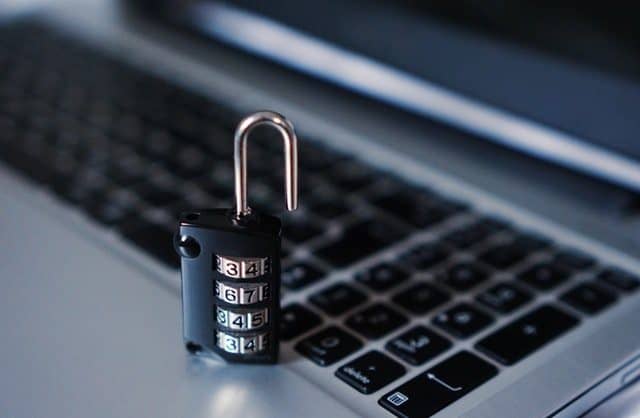Cryptocurrency Password Recovery
Cryptocurrency prices have been down since the May 2022 Luna stablecoin debacle. Uncertainty surrounding the economy as a whole could lead to a difficult 2022 for crypto, but it’s unlikely that this is the end for digital assets as a whole.
Bitcoin was created by a team of skilled computer scientists in 2009, and for years the only people who used the digital asset were those with strong computer skills. However, since Bitcoin-mania began in late 2017, there has been widespread cryptocurrency adoption by less technical users. Many of the more recent Bitcoin buyers are speculative investors who are likely investing in an asset they do not fully understand.
Cryptocurrency Wallet Forgotten Password?

There are a number of different storage mechanisms (requiring various degrees of technical skill) if an individual wants to acquire digital currency like Bitcoin, many require a password.
Using a strong password is highly recommended, but what happens if you forget that password?
Custodial Cryptocurrency Wallets
Storing Cryptocurrency on an Exchange
Major cryptocurrency exchanges like Coinbase, Gemini, Binance, and Kraken enable users to deposit USD, EUR, JPY, and a variety of other ‘fiat’ currencies and exchange them for a variety of cryptocurrencies at market rates. Each of these exchanges offers custodial wallet services on-exchange. This is the simplest mechanism for owning Bitcoin, because the user doesn’t really need to know anything about how private keys or wallets work to own digital assets. However this system relies on two assumptions.
- Your account with the exchange will remain secure (make sure you enable two factor authentication).
- The exchange will remain secure / solvent (see Mt. Gox).
Hypothetical Cryptocurrency Exchange Bank Run
While this strategy does provide simplicity, another caveat is that storing your cryptocurrency on the exchange potentially enables questionable business practices by the company that operates said exchange.
For example, imagine a scenario where you own 10 Bitcoin, but have never transferred it outside of Coinbase, and the same applies to another 99,999 Coinbase users. Let’s say something crazy happens in the world, like 10% inflation in the US or war in Europe to use a couple of outlandish examples. All 100,000 of the Coinbase users who are holding 10 BTC in their Coinbase wallet want to withdraw that Bitcoin to pay for bread or fill up the car with overpriced gasoline.
What’s to prevent Coinbase from claiming to have 1 million Bitcoin in reserves, but they actually don’t. Now you’re in a scenario that is essentially akin to a bank-run, and it’s well within the realm of possibility that Coinbase declares bankruptcy before you’re able to transfer any of your Bitcoin to an actual wallet.
One solution to this doomsday scenario is for an exchange to provide proof of Reserves. A Proof of Reserves audit is a process where an independent third party takes an anonymized view of all balances held by an exchange, to ensure the exchange has all the assets they claim to. Kraken is the only major exchange that has conducted a proof of reserves audit.
Crypto asset recovery from an exchange can go either way. There have been multiple incidents where Binance has stepped in and frozen transactions that had been associated with stolen funds, but this is far from a guarantee. You have no assurance that the exchange you are storing your Bitcoin on will be able, or choose to assist you in the event that you lose access to your cryptocurrency.
Storing Cryptocurrency Off-Exchange in a Custodial Wallet
Another popular form of cryptocurrency storage is using a custodial wallet like Blockchain.com. With a system like this, your private key is encrypted and stored on a company’s server. This is a perfect solution for cryptocurrency enthusiasts who are interested in adding a layer of separation between the exchange used to purchase cryptocurrency and the location the assets are stored.
However, issues can arise if you forget your password for the website or application. It’s possible that the service you are using has a ‘forgot your password’ recovery option, but this is not always the case.
Recover Blockchain Password
If you find yourself in a situation where your assets are locked up in a custodial wallet and you can’t remember the password, all hope is not lost. While you may be out of ideas, there are competent computer science professionals who have the skills to recover blockchain passwords.
In most situations, a dictionary attack is a technique used by black-hat hackers to breach accounts they have no right to access. However this tool can also be used in white-hat scenarios (like when you lose the password to your Bitcoin wallet). The term dictionary attack originates from systems that relied on actual dictionaries, to apply every known word to defeat an authentication mechanism. That said, in this scenario it will be necessary to provide a list of potential passwords to streamline the process.
This service is available in a number of situations:
- Wallet .dat Password Recovery
- Forgot Metamask Password
- Crypto.com Password Reset
- Recover Blockchain Password
